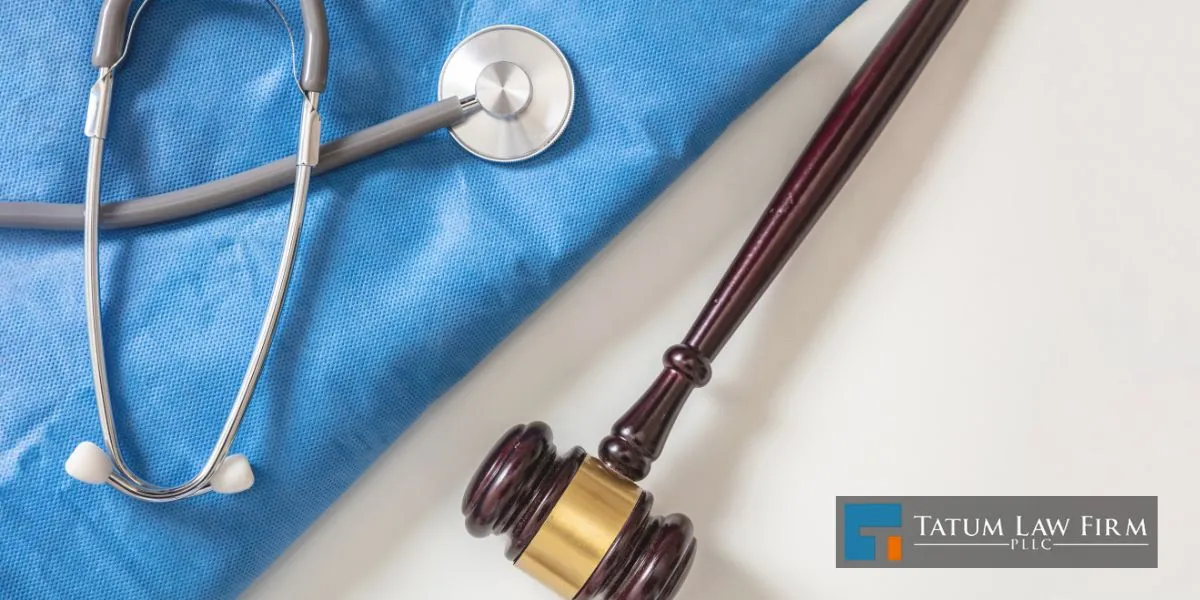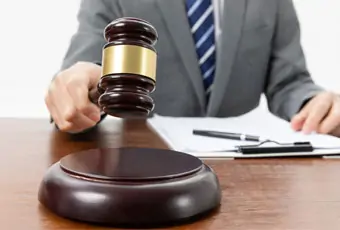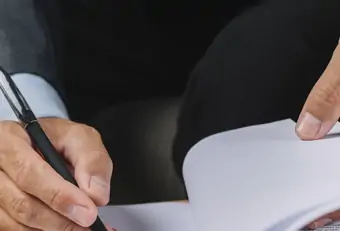Charlotte Medical Malpractice Lawyer

Charlotte Medical Malpractice Attorney
We appreciate all the hard work that medical personnel do. Especially in recent years, we’ve seen the dedication that they have to their work. They are, though, human. That means they can make mistakes.
Given the seriousness of the work that they do, mistakes can have tremendous consequences. Those consequences come with significant costs, from medical bills to pain and suffering. Even if they were honest mistakes or the product of bad institutional policy, the responsibility for those costs needs to fall to someone else and not you.
The law does allow you to recover compensation for these costs, but you may have to fight for them. What you’re paid is going to come off of an insurance company’s bottom line, and they tend not to want to part with profits very willingly. You don’t have to fight alone, though. Our Charlotte medical malpractice lawyer at the Tatum Law Firm can fight on your behalf and put forth a strong argument to receive everything that you’re owed.
Who Can Be Liable for Medical Malpractice in Charlotte
The first step in a medical malpractice claim is determining who is liable for a situation. Many people might assume that it’s only doctors or medical personnel, but the liability could extend beyond them. Medical malpractice could relate to medical equipment and suppliers or even the policies of medical institutions.
Some of the more common liable parties for medical malpractice in Charlotte, North Carolina include:
- Doctors: Doctors are responsible for the process of diagnosing a problem and deciding on the right treatment. However, they are also busy and often dealing with trying to determine what’s happening with many patients at once. Occasionally, something can get overlooked and cause a problem rather than solving it. Doctors are typically the party that’s held liable when there is an error with a diagnosis or if the wrong treatment is prescribed for the condition.
- Nurses: Nurses are, more often than not, responsible for actually conducting treatment in many medical facilities. In particular, they are responsible for monitoring patients and getting them the proper medication. In many cases, though, they are attempting to balance the responsibility of managing several patients. Sometimes, mistakes can occur in those situations. If there are errors involving medication or some type of monitoring mishap, it could be the nurses involved who are held liable.
- Surgeons: There are a variety of errors that occur during the process of surgery. Some are minor, while some are much more serious, including performing surgery on the wrong body part or even conducting the wrong surgery for a particular person. In situations where something goes wrong during surgery, it may be the surgeon who is liable.
- Pharmacists: There are a variety of issues that can occur with a pharmacy, including giving someone the wrong medication, mislabeling medications, and failing to give proper warnings and instructions. The pharmacist could be held liable if any of these issues occur.
- Hospitals and Surgery Centers: There are some injuries that come about as the result of a bad policy or lack of policy at different medical institutions. If it can be shown how the policy problem doesn’t meet the standard of care that one would expect, then the medical institution could be the liable party.
- Medical Equipment Manufacturers: For whatever reason, sometimes a product that is produced fails or has some defect with it. This isn’t a major problem when it’s a ballpoint pen, but it can have serious consequences in the case of medical equipment. If the equipment can be shown to have been defective, then the producer may be the one held liable.
Proving That Malpractice Occurred in Charlotte
A medical malpractice claim is a form of Charlotte personal injury claim, with some slight variations accounting for the unique nature of medical practice. This means, though, that just because a doctor was incorrect, it is not necessarily a sign of malpractice.
For something to be malpractice, it must be negligent. That means the plaintiff must be able to show medical negligence on the part of the doctor. This follows roughly the same process as any personal injury claim, again with some slight adjustments for the unique nature of medical practice.
Three elements must be proved to have a case of medical malpractice:
- Standard of Care: The first thing that needs to be shown is that there is a standard of care for the situation for which you were seeking medical care. There is an expectation of what kind of testing, treatment, or other care that reasonable medical personnel would have undertaken given the same circumstances. This generally means the plaintiff would need to have a more common condition and not a particularly obscure one for which there is not much of a standard approach. Proving a standard of care may involve bringing in equivalent medical professionals to attest to what the standard of care would be in your situation.
- Breach of Care: It must be demonstrated that the care that was given failed to live up to the standard. This means the care wasn’t what a reasonable peer would have done given the same information and circumstances. In some instances, a particular course of treatment could later be discovered to have been the incorrect form of treatment for the given situation. However, it would not be considered a breach of care if it was still aligned with the standard of what any medical professional would be expected to do in that same situation.
- Cause of Injury: Lastly, it must be shown that the breach, or failure to provide the standard of care, led to the plaintiff being injured. A mere breach on its own is not enough for negligence. There must also be an injury that someone experiences at the hands of a professional for something to be considered malpractice. This could be a worsening of their condition, the development of a new issue, or even the prolonging of their current problem.
What Are Potential Damages You Could Be Awarded?
The financial award in a medical malpractice claim is referred to as damages. However, to receive damages, you must be able to show that the injuries from the breach of care are the direct cause of the costs you are seeking compensation for. In other words, you must be able to show that the failure to live up to the standard of care is the reason that you incurred these costs.
In most cases, the damages awarded in a medical malpractice claim fall into one of two categories:
- Economic: Things like medical bills or lost wages from having to miss work are included in economic damages. Anything that is easily calculable because it has a bill or a financial cost associated with it is compensated through economic damages. This may, depending on the severity of the injury, extend to future expenses as well, such as continued treatment, physical therapy, or lost earning capacity.
- Non-Economic: An injury can also create costs that are more psychological or emotional, things like pain and suffering, loss of enjoyment in life, or even the loss of function of a body part. These elements are given an estimated value and paid out through non-economic damages. Unlike most other personal injury cases, there is a cap to the non-economic damages that can be awarded in medical malpractice claims. The cap is adjusted for inflation every three years, and as of 2023, it was a little over $650,000. The exception to the cap is if there were permanent or disfiguring injuries as a result of an action that was intentional, malicious, grossly negligent, or reckless.
There is a third category of damages, punitive damages, that could be given in a medical malpractice case. These are damages that are meant to act as a punishment or deterrent if the action that caused the injury was particularly egregious or malicious. Awarding these kinds of damages in medical malpractice cases is rare.
Typically, there would have to be something particularly dangerous about an institutional policy, some intent to harm, or an attempt to cover up the mistake to be awarded punitive damages.
What Pure Contributory Negligence Means for Medical Malpractice in Charlotte
North Carolina is one of only five states in the union to use a pure contributory negligence doctrine. In most other states, if the plaintiff is found to have some share of fault for an injury, then their ability to collect damages is reduced proportionate to the role that they played. In North Carolina, though, if the plaintiff is found to be in any way at fault for their condition, then they will lose all opportunity to collect damages.
It could have a tremendous impact on your case if the defendant can prove your actions had some part to play in your condition. This could result from something as simple as not taking any prescribed medication precisely according to what the doctor ordered. With the possibility of such a devastating option available, the defendant’s lawyers are sure to attempt to argue for this. One of the things your attorneys will be responsible for is defending against these kinds of claims.
What Is the Statute of Limitations in Charlotte, NC?
One of the important elements of a medical malpractice claim is the statute of limitations. It sets the deadline for when a claim must be filed. In most situations, this is three years from the time the incident occurred. There are only a few exceptions to this deadline. For instance, if you don’t discover the injury until later, there may be a little extra time to file, but no more than four years out from the incident.
If there was a foreign object left inside you following surgery, a claim can be filed within one year of the discovery of the object. However, even in this case, a claim cannot be filed after ten years from the original incident.
Generally, it’s better to merely think of the deadline as three years, as the exceptions are rarely applicable. While three years may seem like a long time, given the need to investigate the situation, prepare for a possible case, and negotiate with the insurance company, don’t wait until close to the limit to consider a claim. The sooner you speak with a lawyer, the more time they will have to try and get you what you’re owed.
What a Charlotte Medical Malpractice Lawyer Does?
A medical malpractice lawyer can be essential to getting a favorable outcome for your case. At the Tatum Law Firm, we begin by investigating every aspect of your situation to determine where there is potential liability. We gather facts and evidence to support those areas and prepare to argue in your favor. We can also negotiate with the insurance companies on your behalf to see if an agreement can be reached that keeps the case out of court.
However, if court is unavoidable, we can represent you as our client through that process, including arguing malpractice on the part of the defendant and arguing in your defense against claims that you may share the fault. From start to finish, it’s our job to fight for what you’re owed.
Get What You’re Owed From Medical Malpractice in Charlotte
We understand how hard it can be when you need medical care, and somehow, your condition is made worse when you seek it. We put a lot of faith in our medical system, and it’s frustrating when it lets us down. People make mistakes, systems are poorly designed, and accidents happen.
None of those things, though, negate the responsibility that the parties to blame have. You’re owed compensation for what you’ve had to go through as a result of medical malpractice. Unfortunately, though, you may have to work for it.
The Tatum Law Firm can help. We can take on the entities that are supposed to pay out these claims. We can negotiate with them on your behalf and, if needed, take them to court. After a thorough investigation of your case, we’ll be prepared to establish malpractice on the defendant’s part, defend you from accusations of fault, and fight for every dollar that you deserve.
If you are ready to discuss your Charlotte medical practice case with us, then contact us today.






